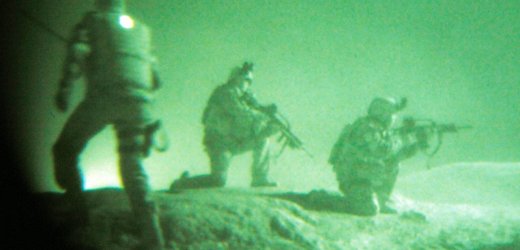
Task Force 373 - Heroes or Villains?
Wall of silence fuels talk of “death squads”
Reading time: (Number of words: )
Task Force 373 is a secret American special operations unit tasked with killing or capturing more than 2,000 senior Taliban and al-Qaeda figures who are listed in the JPEL (Joint Prioritized Effects List). The concept of the unit is sound and consistent with the strategy previously implemented by General Stanley McChrystal, which is to target the enemy’s leadership through precise, small unit operations, thereby reducing civilian casualties.
While TF-373’s personnel, tactics and operations must remain secret, its excessive secrecy has backfired. Even before the WikiLeaks disclosures about TF-373, reports have been circulating that the unit was a resurrection of the 1980’s CIA-supported Central American death squads. With the refusal of the Pentagon to release any information about TF-373, speculation has taken its place, with people believing the worst.
Part of the reason for the Pentagon’s obsession with secrecy is the preeminence of consensus management by General and Flag rank officers (which discourages initiative) and the staffing of civilian positions with risk adverse officials recycled from prior Administrations. As no one is willing to make any declassification decisions (and risk making a mistake), everything gets classified. This is reminiscent of the situation within U.S. military intelligence units in Iraq leading up to the Abu Ghraib prison scandal. The prison was overcrowded, in part, because Major General Barbara Fast was not willing to order the release any of the Iraqi detainees, even though many had clearly been detained unnecessarily.
The concept of a shadowy organization with a license to kill, with no oversight or accountability, is sinister and un-American. However the picture of a covert military unit, facing extraordinary risks and fighting a secret war, would be popular if the public was convinced that targets were being carefully chosen and that after-action investigations, where there are civilian casualties, were being credibly undertaken. This author, at the present time, has no sense that there are any checks and balances on TF-373.
Secretary of Defense Robert Gates should recognize that some transparency is good for business. This author recommends that the Secretary hold a press conference and explain both the mission of TF-373 and the checks and balances that have been set up to prevent abuses. The Secretary should introduce the “internal affairs-type” officials who are monitoring these operations. Those officials must make the case to the public that there is an independent sheriff overseeing the posse and that public can have confidence in their oversight.
The facts may ultimately transform the members of TF-373 into heroes. Today, however, the continued mania for keeping all black operations completely black abandons the strategic communications field to America’s enemies who are free to portray TF-373 members as villains. It also leaves the rest of the world to speculate that the Pentagon is silent only because the truth will reveal misconduct or even war crimes. Limited transparency is not simply good policy but common sense. One counters accusations with facts and speculation with the truth.

Poems for the Hazara
The Anthology of 125 Internationally Recognized Poets From 68 Countries Dedicated to the Hazara
Order Now









